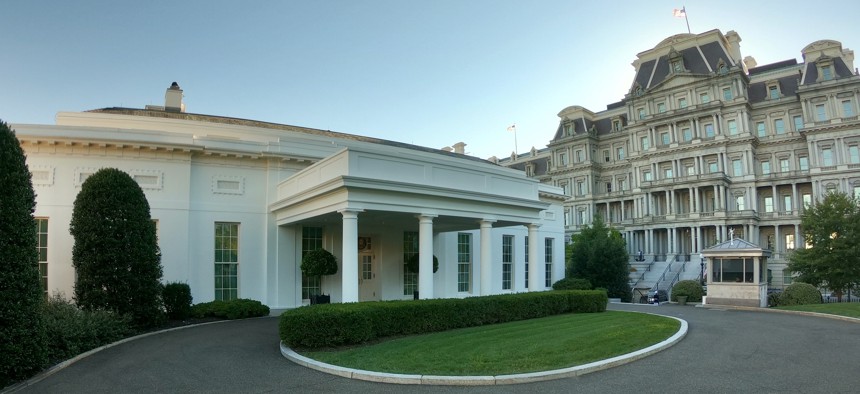The 3 duties of public servants
COMMENTARY | With all that’s going on in Washington these days, public officials have three fundamental duties that they cannot shirk.
A lot is going on in Washington right now, and much of it ultimately comes down to the actions of career public officials. As they respond to the vagaries of politics—whether it’s a return-to-office edict or a potential government shutdown—these officials are squarely in the public eye. So are the political appointees they report to.
As an admittedly old school career executive, as well as a former political appointee, here’s what I learned from some bureaucratic legends on both sides of the ambiguous divide between politics and administration. Among other things, those people taught me that career execs and appointees share three fundamental duties that they simply cannot shirk.
Career executives must speak truth to power. They have a solemn responsibility to give political appointees and elected officials their best advice, without fear of putting their jobs at risk. They take an oath to do so. And that’s the problem with proposals like Schedule F, which would replace much of the career civil service with political loyalists potentially motivated to tell elected and appointed officials whatever they want to hear.
In giving their best advice, career execs are entitled to their personal political opinions, but those opinions cannot consciously color what they tell an appointee. Senior career officials must interpret laws and rules that are often ambiguous, but they still have a duty to speak the truth (as they know it) to those they report to. That takes courage, but it comes with the job.
Political appointees have a duty to listen. In our system of government, political appointees also have a responsibility, one based on the oath they take: to take the advice they are given by career execs into account—whether they like what they hear or not—before they act. This is every bit as important as the duty that career executives have.
And it, too, takes courage. And while it might occur in an explicitly political context that makes due diligence hard on an appointee, I have no sympathy. That’s why appointees are appointed—to make the hard decisions. It’s too easy for appointees to dismiss the advice of career execs simply because they think the latter are just trying to preserve the status quo, or worse, are acting on behalf of some “deep state” conspiracy.
Both have a duty to make it work—and to revisit it if necessary. In our system of government, career execs are ultimately beholden to appointees and the elected officials they represent—within the limits of the law and a clear conscience. Consequently, it is their duty to respect the decisions appointees make and do their very best to make them work.
But that doesn’t mean blind obedience. Both career officials and appointees have a continuing duty to monitor and gather data on the implementation of decisions. And if that data—not just anecdotes but hard data—shows that a decision isn’t having its intended effect (or worse), both share a duty to revisit and modify it as necessary.
I’m not so naïve as to suggest that these judgments are easy. After all, appointees and career execs are human. Both may make imperfect public policy judgements that may later prove off the mark. And in so doing, both must also guard against self-fulfilling prophecies fueled by unrealistic stubbornness, political biases, or just plain “I told you so” sour grapes.
A career executive is duty-bound to help the appointee make his or her decision work. But both officials are also duty-bound to gather data and revisit it as necessary.
A Case Study
The return-to-office memo recently issued by White House Chief of Staff Jeff Zients provides a great example of these three duties in action. Many have taken exception to the memo, arguing it puts federal agencies at a competitive disadvantage in recruiting talent in today’s competitive labor market.
However, I know that Zients has always respected the views of career execs. So I’m betting he heard the concerns expressed by lots of good government experts (including me), and ultimately decided to do something different. Something that was neither illegal nor immoral. And I’m confident he did so for reasons he believes are defensible. He has that right. And whether career execs like it or not, they are obligated to implement that decision to the best of their ability.
But as I said, both appointees and career execs also have a duty to continue gathering unbiased data regarding the impact of the decision. Or they can always leave.
What about “going underground” and attempting to thwart, undermine, or just plain ignore the decision? That’s an option, but I believe it goes against what career officials have pledged to do. I also know that’s easier said than done, and there are lots of gray areas in these situations. I’ve been there myself—after all, I resigned from an appointed position over Schedule F. But that’s the system we have.
Career executives are public servants, with emphasis on the “servants” part. They are not granted any sort of independent, stand-alone authority to “do what’s best for the American people.” (Unless, of course, the law empowers them to do so.) To suggest otherwise merely stokes fears of a deep state among Americans and their elected representatives.
Ronald Sanders is a former career senior federal executive of more than 20 years. He has served as chair of the Federal Salary Council, associate director of the Office of Personnel Management, and director of civilian personnel policy at the Defense Department, among other positions.



